










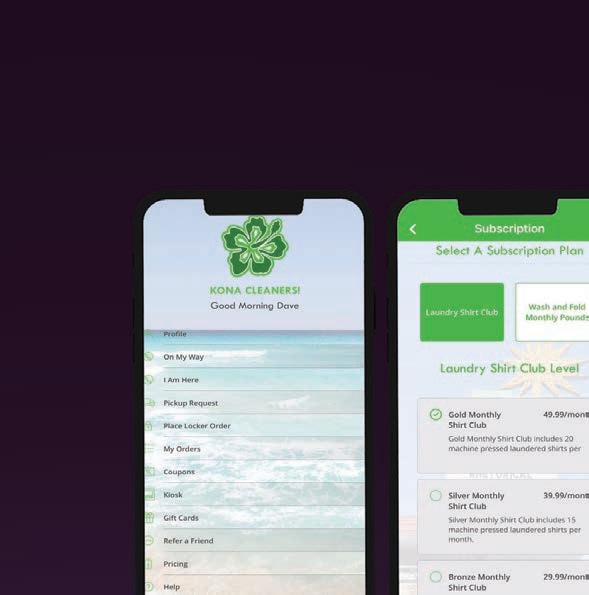













































January 2022
Vol. 88, No. 9 FEATURES
As a society, we’re in a much di erent place than we were as 2021 began. And, while things still aren’t quite back to the way they were before the pandemic, experts say there’s room for optimism as we head into 2022.


Taxes can be complicated to prepare for a small business in the best of times, but government programs designed to help business owers survive the pandemic are adding a new wrinkle. We’ve asked experts how to avoid nasty surprises.
Bob Barry was recently named president and CEO of ZIPS Dry Cleaners after holding the same position in a chain of sports bars. We sit down with Barry to discuss his experiences and see what he believes is ahead for the drycleaning industry.
If you need a little help finding this month’s hanger hidden on our cover, here’s a clue. Good luck!
Our feature-rich software will help you run all aspects of your business more e ectively. CBS includes solutions for full service cleaners, delivery & route services, racking integrations, prepay/post pay, and two-way customer messaging; all features used across the dry-cleaning industry. Ask us about more features!
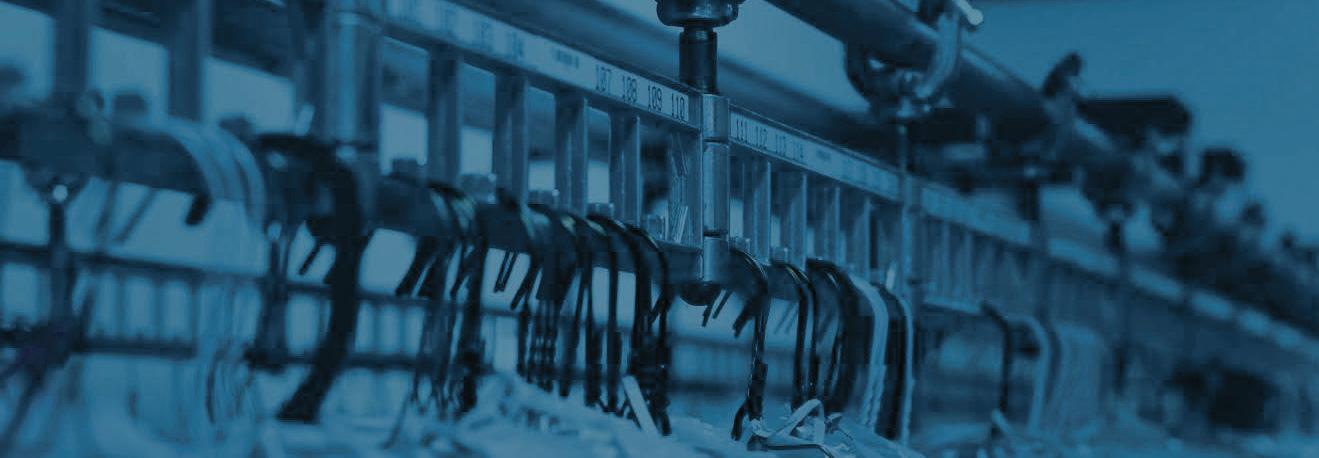
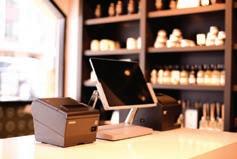
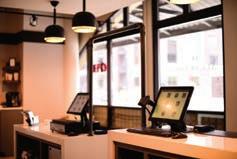
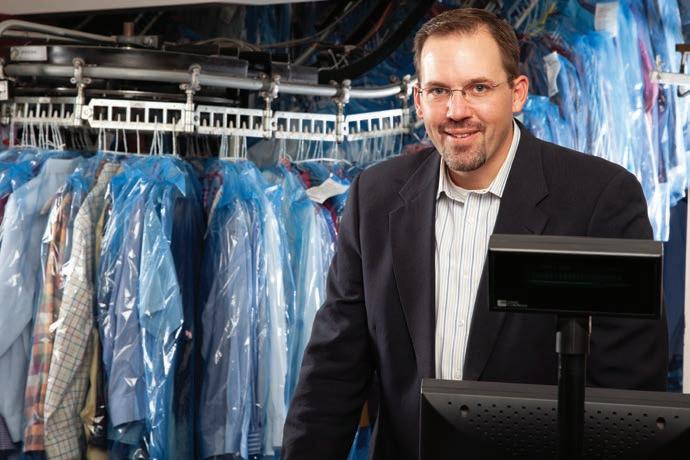
Our support team is a group of dedicated professionals based in the US that takes pride in taking care of customers without making them wait. We’ve been independently owned and operated for over 20 years, o ering you the long-term trust and support you need!
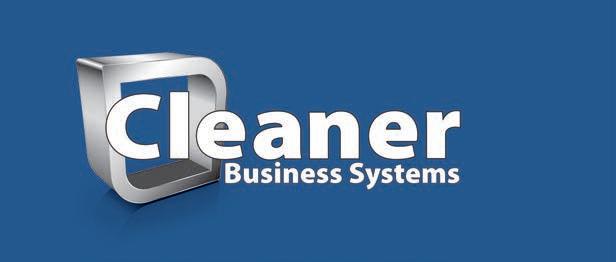
At the beginning of 2021, we were emerging from some of the industry’s darkest days with a bit of hope. Many thought that the vaccines just over the horizon would give society a fresh start to undo some of the damage 2020 wrought.
We’re starting 2022 with the understanding that the issue is more complex than we first thought.
Unexpected new variants of the coronavirus and the hesitancy of many to take the vaccines, coupled with difficulties in the supply chain and the inability of many business owners to simply find labor, have added an unwelcome degree of difficulty to recovery.
In this issue of American Drycleaner, we’re breaking out the crystal ball in our first feature story and taking a look at what might be coming our way in 2022. We’ve asked dry cleaners and industry leaders for their take on the challenges cleaners might face in this new year. We also explore the mindsets that will separate those who will struggle from those who will make the next 12 months their year.
In our second feature, we’re examining some of the tax issues that dry cleaners might face as they file taxes for the previous year. While the tax situation of many small businesses is often complicated, the alphabet soup of federal assistance programs created to help during the worst of the pandemic is further muddying the waters. We’ve asked CPAs and tax preparers about what dry cleaners should be aware of as tax time comes.
We’ve also interviewed the new president and CEO of ZIPS Dry Cleaners, Bob Barry. Barry comes from a restaurant background, previously serving as the president and CEO of a chain of sports bars. While there are certainly differences between that field and the dry cleaning industry, Barry has found several commonalities, as well.
We’re rounding out this issue with a special feature about the importance of marketing to your current clients. While it’s great to see new faces over the front counter, hanging on to existing customers is crucial for profitability and predictability for the bottom line. Don’t forget to check out www.americandrycleaner.com for expanded versions of all these stories. Sometimes, there’s just too much information for the printed page!
American Drycleaner (ISSN 0002-8258) is published monthly except Nov/Dec combined. Subscription prices, payment in advance: U.S., 1 year $50.00; 2 years $100.00. Foreign, 1 year $120.00; 2 years $240.00. Single copies $10.00 for U.S., $20.00 for all other countries. Published by American Trade Magazines LLC, 650 West Lake Street, Suite 320, Chicago, IL 60661. Periodicals postage paid at Chicago, IL and at additional mailing offices.
POSTMASTER, Send changes of address and form 3579 to American Drycleaner, Subscription Dept., 125 Schelter Rd., #350, Lincolnshire, IL 60069-3666. Volume 88, number 9. Editorial, executive and advertising offices are at 650 West Lake Street, Suite 320, Chicago, IL 60661. Charles Thompson, President and Publisher. American Drycleaner is distributed selectively to: qualified dry cleaning plants and distributors in the United States. The publisher reserves the right to reject any advertising for any reason.
© Copyright AMERICAN TRADE MAGAZINES LLC, 2022. Printed in U.S.A. No part of this publication may be transmitted or reproduced in any form, electronic or mechanical, without written permission from the publisher or his representative. American Drycleaner does not endorse, recommend or guarantee any article, product, service or information found within. Opinions expressed are those of the writers and do not necessarily reflect the views of American Drycleaner or its staff. While precautions have been taken to ensure the accuracy of the magazine’s contents at time of publication, neither the editors, publishers nor its agents can accept responsibility for damages or injury which may arise therefrom.
Publisher
Charles Thompson
312-361-1680 cthompson@ATMags.com
Associate Publisher/ National Sales Director
Donald Feinstein 312-361-1682 dfeinstein@ATMags.com
Editorial Director
Bruce Beggs 312-361-1683 bbeggs@ATMags.com
Editor Dave Davis 312-361-1685 ddavis@ATMags.com
Digital Media Director
Nathan Frerichs 312-361-1681 nfrerichs@ATMags.com Production Manager Mathew
American Drycleaner, January 2022 www.americandrycleaner.com
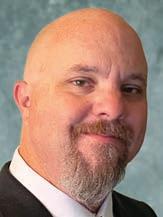

The past year has been one of recovery for many dry cleaners, while others have struggled to remain level — or have fallen further behind — as the pandemic receded but refused to go away. Still, the results of our American Drycleaner “Your Views” survey found that most of our respondents believe better days are ahead.
When asked how their company’s 2021 overall results compared to those of 2020, just over a third (33.93%) reported a “vast improvement,” with the largest percentage (48.21%) saying there had been “good improvement.”
Other owners didn’t fare quite as well, with 12.5% reporting business had been “about the same,” 3.57% said they witnessed a “downward trend,” and 1.79% were facing a “steep decline.”
When asked, “What lesson did you learn this year that you wish you had known as the year began,” answers included:
• “Putting prices up by 50% helped us attract more customers and a better type of customer.”
• “Image and quality are paramount.”
• “I learned you have to satisfy the top tier and ask for referrals.”
• “Marketing is the key to getting your clients back in the door.”
We also asked what their primary goal was for 2022. The majority (44.64%) put “adding new customers” at the top of their list, with “building up route services” coming in second at 19.64%. “Providing/fine-tuning new services” were top of mind for 12.5%, and “adding/replacing equipment” was of prime importance for 5.36%.
Other answers included “more wedding dress cleaning,” “finding good employees” and “building a more efficient and larger production facility.”
Most of our respondents believe that 2022 will be brighter than the last couple of years. When asked, “How do you think your company will perform in 2022,” 48.21% said that “We’ll go beyond our pre-pandemic numbers,” and 17.86% said that “We’ll reach our pre-pandemic numbers.” A little more than a quarter (26.79%) believed that “2022 will remain below pre-pandemic levels,” and 7.14% said that “The coming year will be a struggle.”
How will your company’s 2021 overall results compare to those of 2020?
How will your company’s 2021 overall results compare to those of 2020?
48% 12%
3% 2%
3% 2%
Vast Improvement Good Improvement About the Same Downward Trend Steep Decline
Vast Improvement Good Improvement About the Same Downward Trend Steep Decline
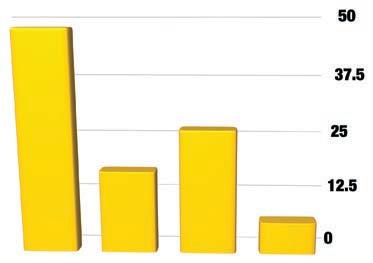
48% 18%
How do you think your company will perform in 2022?
How do you think your company will perform in 2022?
48%
34% 7%
34% 7%
We’ll go beyond our prepandemic numbers.
We’ll go beyond our prepandemic numbers.
We’ll reach our prepandemic numbers.
We’ll reach our prepandemic numbers.
12% 27%
2022 will remain below prepandemic leaves.
2022 will remain below prepandemic leaves.
The coming year will be a struggle.
The coming year will be a struggle.
Our respondents reported they had learned valuable lessons, which will serve them well when building that brighter future. “Through marketing and implementing new services, we will be stronger than ever in 2022,” one says.
“Part of management is crisis planning and maintaining financial flexibility during the prosperous times,” another respondent says. “The combination of 60-day statements and very little technical knowledge leaves no room for even a small downturn, much less what we have been through. You can market the sizzle, but the test comes when you have to serve the steak.”
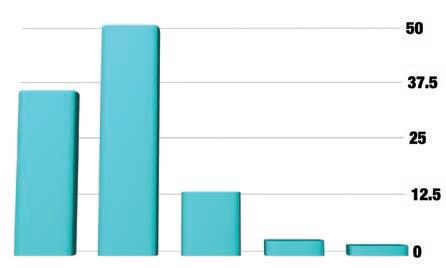
The “Your Views” survey offers a current snapshot of the trade audience’s views. The publication invites qualified subscribers to American Drycleaner emails to participate anonymously in the unscientific poll each quarter.


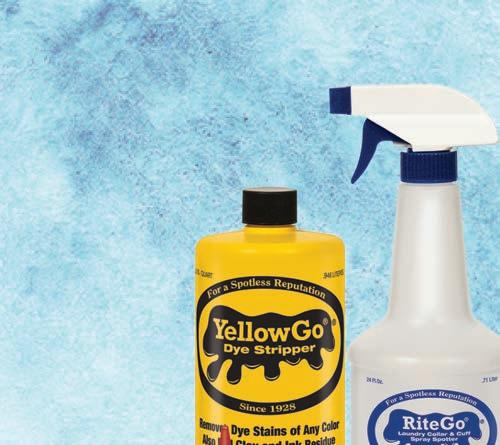
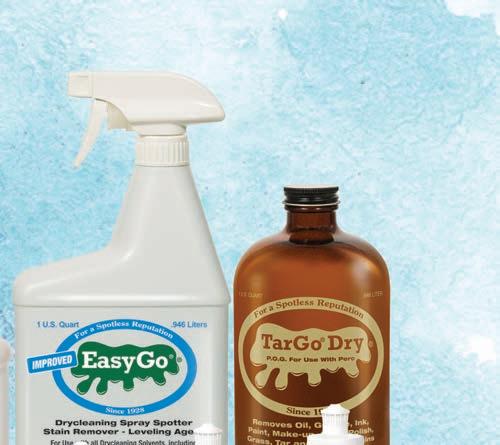
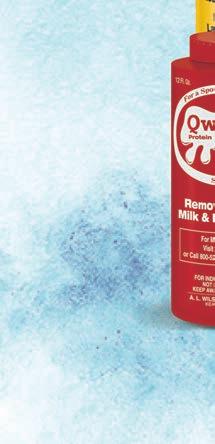














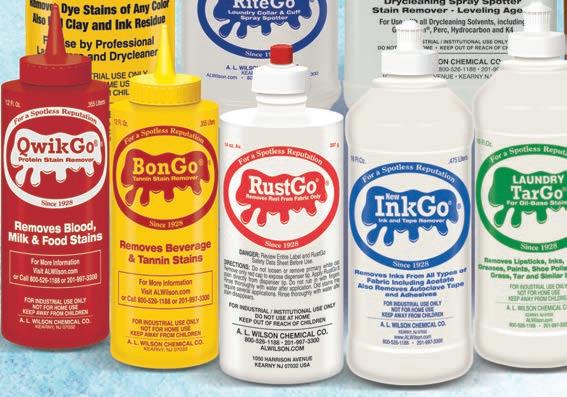
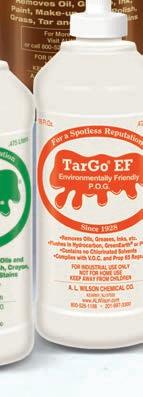
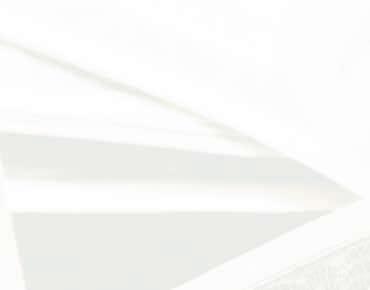
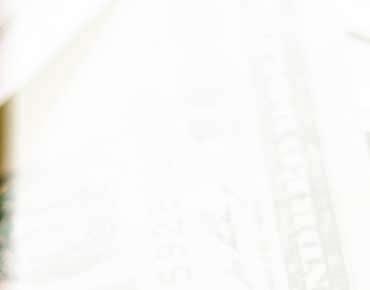
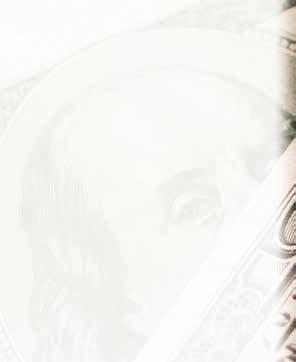
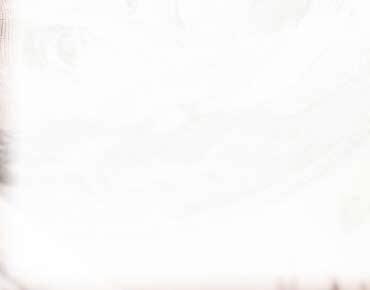
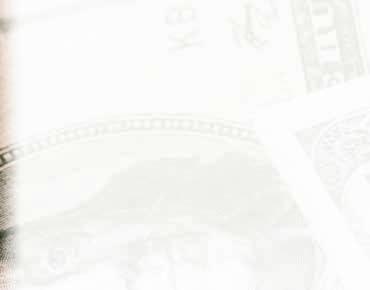
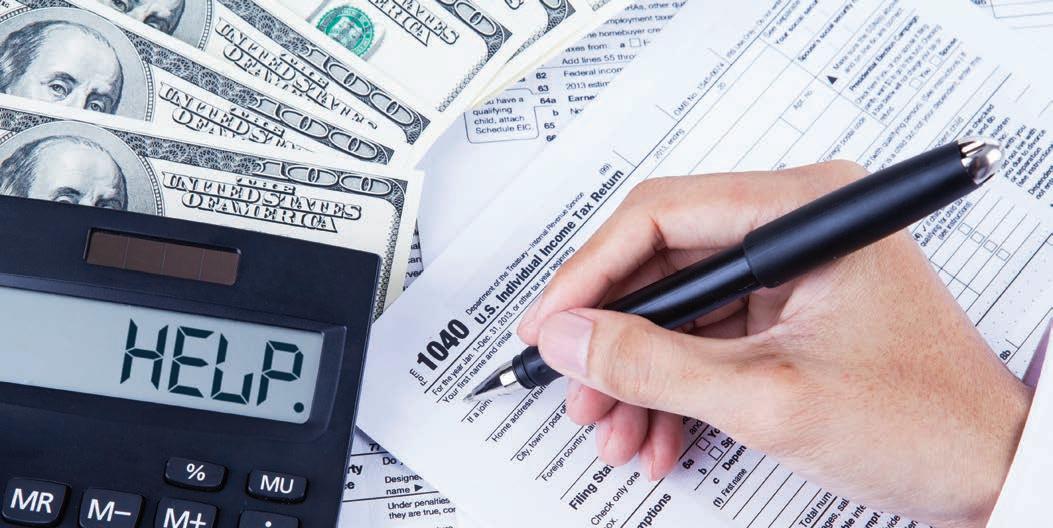 By Dave Davis, Editor
By Dave Davis, Editor
Tax preparation can be a challenge in the simplest of times. Howver, given the number of government programs set up in the last couple of years to help small and mid-sized businesses through the pandemic, this task has become even more daunting. Still, by paying attention, and seeking the help of professionals when necessary, cleaners can take care of their taxes — and might even find some pleasant surprises.
Dry cleaners have had to learn an alphabet soup of government acronyms in the past few months. Among them are the Paycheck Protection Program (PPP), Work Opportunity Tax Credits (WOTC) and Employee Retention Tax Credits (ERTC). Understanding what each of these programs was designed to do and how they work together is crucial to successfully dealing with your tax liability.
“There are two levels of the PPP loans that business owners need to be aware of,” says CPA Sean Manning. Manning is the CEO of Payroll Vault, a payroll and workforce management company headquartered in Littleton, Colora-
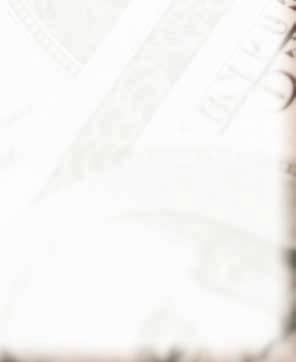
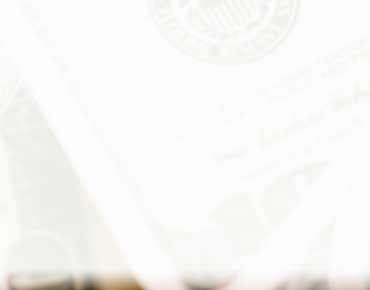
do. “The good news with PPP is that any qualified expenses are deductible. And the other really good news is that the receipt of those funds, if used for qualified expenses, is nontaxable. That information took a while to filter through. It’s important that dry cleaners discuss this with their tax preparer to make sure it’s all managed properly.”
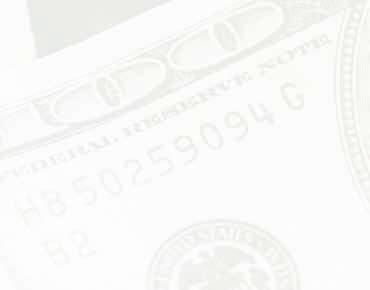
Qualified expenses, Manning explains, include items such as payroll — as the name of the program implies — as well as rent, utilities, and day-to-day expenses that allow a business to function. The PPP loans ended in May 2021, and many recipients were eligible for full loan forgiveness.



“There’s a timing component to all of this,” he says. “It’s important to follow the timing of expenses, the timing of when the funds are received and used, and then the timing of when the loan is forgiven to make all those pieces come together so they don’t pay income tax and they get the deductions of the expenses.”
The Employee Retention Tax Credits, or ERTC, is another program that helped many cleaners survive the darkest days of the pandemic and keep their core staff together.
First offered in 2020, the ERTC is a checklist formula that allows business owners to get a tax credit on a portion of what they paid their employees on their payroll tax reports. The program came to an end as part of the recent infrastructure bill, says Jonathan Boehmer, vice president of client success at PuzzleHR, a human resources firm headquartered in Tampa, Florida.

“Many cleaners out there may not be aware that the legislation President Biden signed killed the ERTC for Q4 2021,” he says. “They’re not going to be able to claim it.”
While the ERTC has ended, owners can still look to the past to maximize their benefits if they didn’t take full advantage of them at the time, Boehmer says.
“One thing I want the cleaners to know is that the
Steps to ensure your business gets all the (tax) credit it deserves
There’s more: We’re just two members of NIE’s team of experts. NIE has been handling fabricare insurance since 1915!
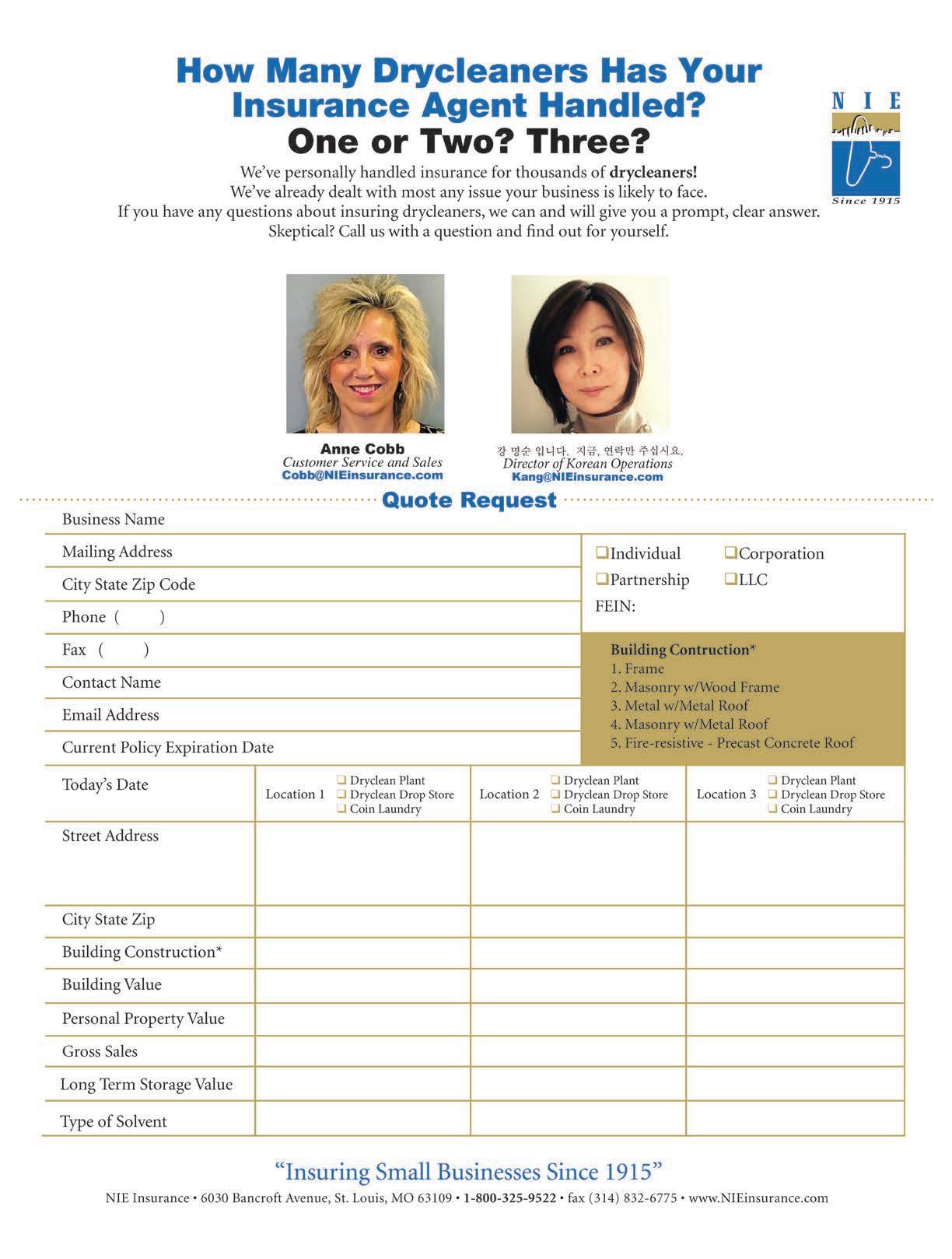
statute of limitations for claiming the ERTC for 2020 and the first three quarters of 2021 is five years,” he says. “I don’t recommend they wait, but if they haven’t claimed their 2020 ERTC as of yet, it’s not widely known that the actual statute of limitations on that is five years.”


Boehmer cautions cleaners not to double-dip when it comes to these programs.
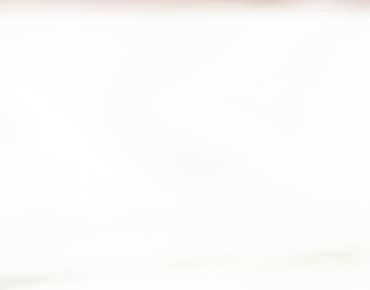
“The worst common mistake you can make is to commingle wages that are PPP with ERTC,” he says. “For the dollar that you paid your employee with PPP, you cannot also claim that dollar for that pay period for employee retention credits.”




Boehmer believes that Work Opportunity Tax Credits (WOTC) is one of the most powerful government programs aiding employers.


The WOTC program is designed to encourage employers to hire people from targeted groups by giving the business tax credits for each employee that qualifies — up to $9,600 per employee. The targeted groups include veterans, ex-felons, summer youth employees, vocational rehabilitation referral employees and Supplemental Nutrition Assistance Program (SNAP) recipients.
Boehmer points out that labor laws prevent employers from asking potential hires certain questions during recruitment, such as if they are on social programs. “But once you hire them, you can ask them all these questions to see if they fall into any of the demographic populations in order to claim your Work Opportunity Tax Credits.”

Because of the attrition seen in positions in a drycleaning plant, this program can gain an owner significant tax credits — if they know to look for them. The turnover for certain roles is so high that this credit could come into play several times during the year when different employees have filled the same position, Boehmer says.
Even for dry cleaners who have owned their business for many years, the past couple of years can present challenges — and opportunities — come tax time. Staying on “autopilot” could cost them money.
“A lot of business owners forget that they need to consider anything that they can reasonably justify as a business expense,” Manning says. “Now might be a really good time to go through their financial statements and their expenses. Has any of that changed? A good example would be cleaners who are now doing more delivery. Did they have to buy a delivery vehicle? Do they have delivery expenses now that maybe they didn’t before? Did they modify their workspace or their building or their parking lot in order to accommodate drive-thru pickup?”
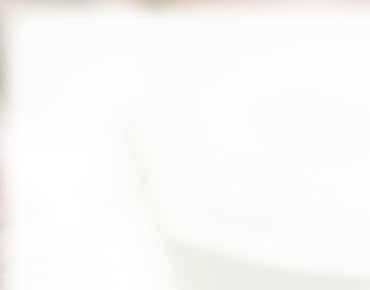



There are fundamental steps that dry cleaners should pay attention to that will help both them and their tax professionals make the process smoother, says Samantha Rocco, a tax and estate lawyer with the Einhorn, Barbarito, Frost & Botwinick law firm in Denville, New Jersey.
“To avoid the stress associated with that last-minute scrambling, dry cleaners should keep records for their business income and expenses organized and in a secure location throughout the year, rather than waiting until tax time to sort through that paperwork.”
Clear bookkeeping is everyone’s friend when it comes to taxes, Rocco believes.

“For each expense, the dry cleaner should retain a receipt, and I would also suggest scanning the receipts so that they can retain a digital copy,” she says. “In addition, I would suggest creating a spreadsheet if they don’t already have one to track the business’s income and expenses. By doing so, the dry cleaner’s task of organizing their receipts will be a lot more manageable.”
Rocco has found that keeping current with tax information can save both headaches and heartaches: “By keeping track throughout the year, a dry cleaner won’t have to try and remember months-old expenses while feverishly looking through old papers trying to locate receipts when tax time inevitably rolls around.”
In fact, the very idea of “tax time” can be a misnomer, she says. It’s more accurate to think of the process as “tax times,” because many dry cleaners are required to pay estimated tax payments quarterly.
“If a business is going to be required to pay estimated tax payments,” Rocco says, “I suggest making sure to put reminders in the calendar so that the estimated tax payments don’t slip through the cracks. If they do, that can result in penalties from the IRS.”
A common mistake in tax preparation occurs when business owners mix business and personal finances.
“When the owner and the business have one account or one credit card, it can lead to a nightmare at tax time,” Rocco says. “It becomes very difficult to determine which expenses were personal and which were business expenses. So, the best bet is to just keep separate accounts to avoid that confusion.”
And, while the vast majority of dry cleaners certainly don’t enjoy dealing with taxes, Rocco says it’s best to keep on top of them throughout the year.
“Waiting until the last minute, as many of us know, will cause stress,” she says. “And we want to avoid delaying payment of your tax obligations and avoid any penalties that may be associated with paying your tax obligations late to the IRS. That’s never a good thing.” ADC
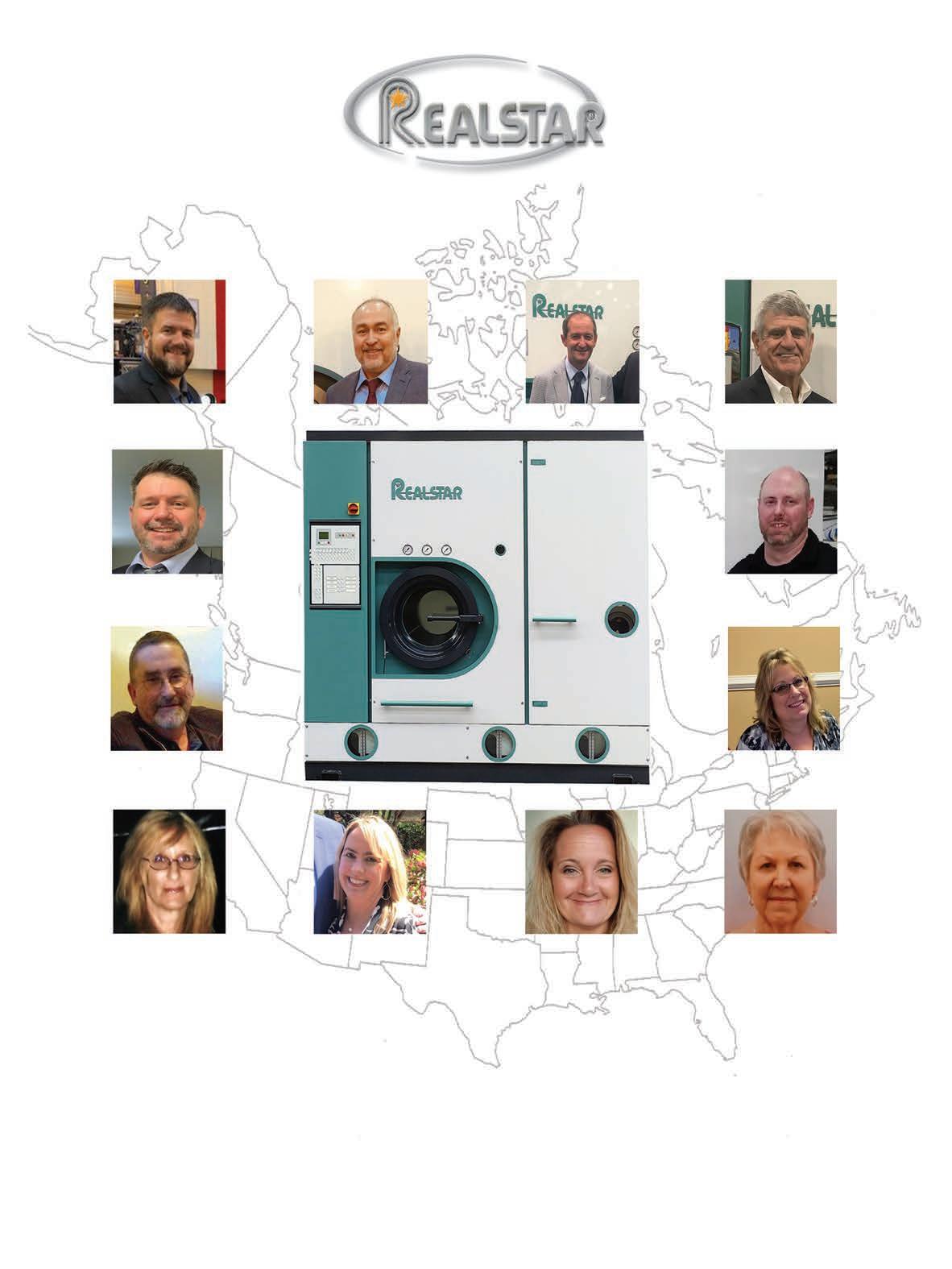


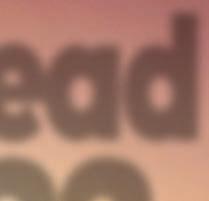

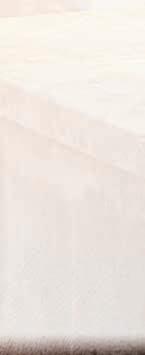

 By Dave Davis, Editor
By Dave Davis, Editor




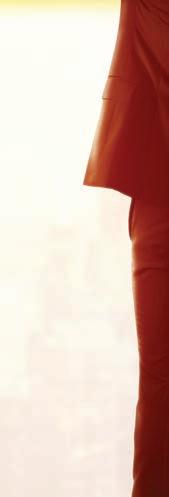



As we open the book on 2022, the drycleaning industry — like society itself — is in a much different place than it was 12 months ago. While the pandemic hasn’t vanished as we had hoped it would have by now, vaccines have helped turn the tide, and things have largely reopened.
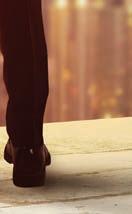
The return to the office — and the business attire that goes along with it — hasn’t fully materialized, however, and dry cleaners have had to adapt and evolve to meet the needs and demands of today’s consumers. Still, there’s room for optimism as the industry heads into a new year.

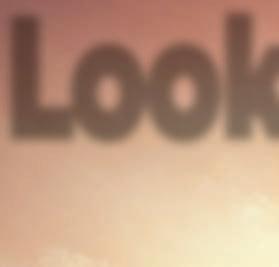
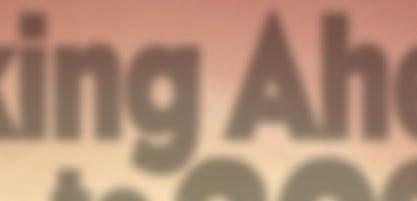


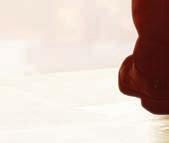



“I’m very hopeful,” says Sassan Rahimzadeh, president of ARYA Cleaners in San Diego, California. “Twelve to 15 months ago, I was not hopeful at all. Hope versus hopelessness is the main difference I see at the beginning of 2022 as opposed to the beginning of 2021.”


Rahimzadeh, who is also the president of the California Cleaners Association (CCA), bases his optimism on returning business — but it’s important to know this business might not look the same.

“I think the fears we all had about the need of our services to the general public going away has been proven wrong,” he says. “People are coming back — but they’re coming back in different ways for different levels of
service. We’ve absolutely had to look at other services we provide.”
Peter Blake, executive director of the Northeast Fabricare Association (NEFA), South Eastern Fabricare Association (SEFA) and the MidAtlantic Association of Cleaners (MAC), agrees with Rahimzadeh’s assessment of what’s to come for those who learned the lessons of 2020-21.
“There were a lot of unknowns at the end of [2020],” he says. “There was a real hope that, with a vaccine coming out, everyone would be going back to work, and we’ll be getting back to business as usual. I think a large part of the industry was holding on to that hope. But I think the ones who were making changes, were investing in their education and information base, were better prepared for the changes that were really long-lasting.”
“I think in 2022, we’ll see a return to people taking advantage of experiences, of people traveling and wanting to have a life,” says Nora Nealis, executive director of the National Cleaners Association (NCA). “That means getting out of their own homes and participating in the world a little more. If you look at the sale of dryclean-type clothes, they’re starting to tick up, so that’s a good sign.”
“We’re a hell of a lot better off now than we were at the beginning of 2021,” says Mary
Cleaners who have learned to adapt will see a brighter future










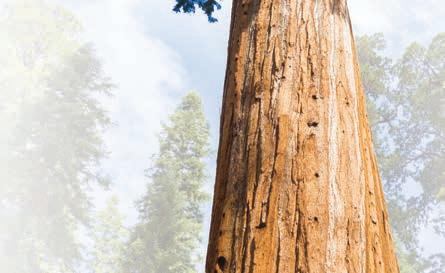




Scalco, CEO of the Drycleaning & Laundry Institute (DLI). “I think that most of the surviving operators have recovered to anywhere between 60% and 70% of where they were in 2019, and I think that will only continue to grow as we move forward. Remember that, last year at this time, many were down 70-80%.”
Part of finding success in the post-pandemic world for many cleaners has been evolving the services they offered to their customers as their needs changed.
“I’ve also spoken with some members who are 110120% of where they were in 2019 because they diversified,” Scalco says. “They said, ‘We’re going to move past just being dry cleaners. We’re going to offer wash and fold. We’re going to offer bedding. We’re going to do more.’ I think that’s going to be the state of the industry moving forward.”
Scalco believes that “tomorrow” became “today” for some the plans owners might have been considering.
“For those thinking about getting into pickup and delivery, for instance, the pandemic lit a fire under them,” she says. “Those who were thinking about using social media for marketing? Same thing. The pandemic sped up the changes that were going to ensue in the industry anyway.”
“You’ve got to think of yourself as a businessperson,” Nealis says. “There’s a significant list of things you can dry clean and launder. I spoke with a cleaner in Queens, New York, and suggested that he go to local beauty parlors, nail salons and spas and offer to do their towels. Towels would be nothing for him to do. It’s easy work. Several months later, the guy called me and said that was a lifesaver. The funny thing is, when times were good, he would have turned up his nose at that suggestion.”
Rahimzadeh had the same experience when looking for new ways to maintain profitability.
“We’ve always thought we were capable of doing patio furniture cleaning, but I never promoted it,” he says. “I never thought of it as a part of my business services to go after. But now, I’m seeing the absolute niche market that exists — that we could really go after it and do it.”
Blake believes that the path to recovery for dry cleaning has mirrored how different parts of the country reacted to the pandemic.
“It came back the quickest in the Southeast, I believe,” he says, “because they were a little more progressive

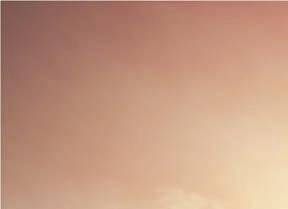
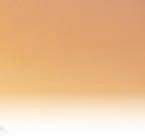





when it came to allowing businesses to operate, fewer mask mandates, going back to school quicker and so on. Businesses reopened more quickly, which meant that people returned to life and started going back out a lot quicker than other areas. Areas in the Northeast, such as New York and Boston, have been slower to do that. It’s taking that area of the country a lot longer to return to going out and socializing.”
While California had some of the heaviest restrictions during the crisis, Rahimzadeh says the cleaners he’s spoken with learned to adapt.
“The regulations forced on us, versus the rest of the country, would have seemed to be much more impactful here, but they’re really not,” he says. “We deal with it. Those are not the things that control the destiny of my company.”
Rahimzadeh says the current pain point for most dry cleaners can be summed up in one word: labor.
“Twelve months ago, we were all worried about business coming in the door, and that we had too much staff to take care of what was coming in and trying to figure out what to do with them,” he says. “Today, it’s the exact opposite. We’ve got plenty of business walking in the door; we just don’t know how the heck to handle it. I believe that if you asked everyone what are 50% of their headaches today, it’s not customers, it’s not rent. It’s labor. That’s the toughest challenge we have.”
Competition for workers is one of the biggest obstacles cleaners must overcome, Scalco believes.
“Labor is crazy right now,” she says. “In most cases, the minimum wage hasn’t gone up to $15 an hour, but you’ve got places like Chick-fil-A and Walmart offering that wage, along with college scholarships and other perks. That’s the same labor pool. It’s hard for small dry cleaners to compete with that.”
Rahimzadeh believes that matching wages to better compete for quality workers can be an investment — one that he has seen pay off at his company.
“Our payroll has gone through the roof, but I’m still profitable,” he says. “The average pay rate at my company now is about $18 an hour. If you had told me that four years ago, I would have told you I’d be out of business. And yet we’ve just had our most profitable quarter ever. So, don’t be afraid to spend your money — if you spend your money wisely. We invest in pieces of equipment to




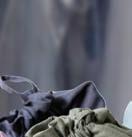
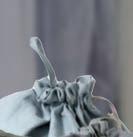

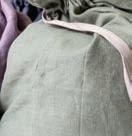


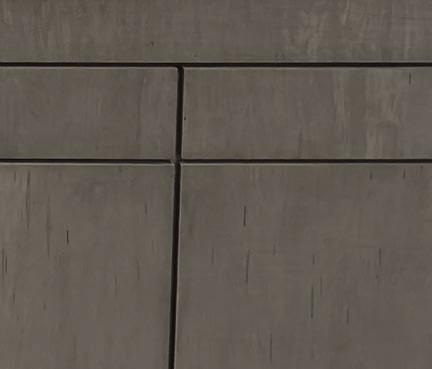
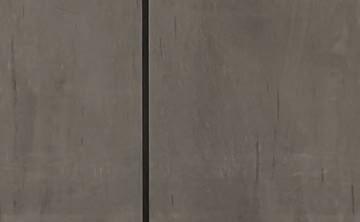








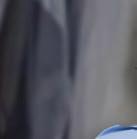
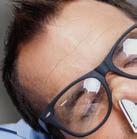














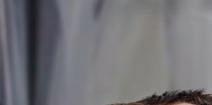




























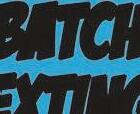


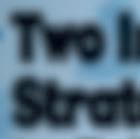

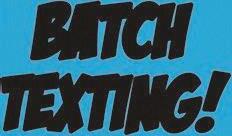




There is no set of rules when it comes to marketing for a drycleaning business. Word of mouth is often a driver of new and existing customers. Emerging technologies continue to innovate business across every industry, and the drycleaning realm is no different.
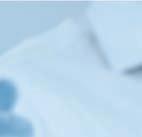






These days, business owners must focus and market to their existing customers. Brands are reconsolidating after the pandemic. However, the ones who connect with their existing customers will find the most success. You likely have already done the work of gaining their business, but they’ve also stuck around because they enjoy particular aspects of your company. It’s time to reward that loyalty by focusing your marketing on their needs.



































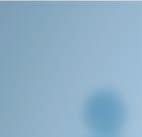

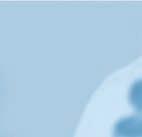




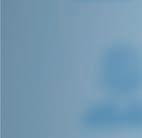


Here are two basic strategies to ensure your business has the greatest impact on your existing customers.

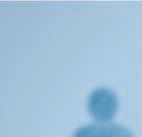






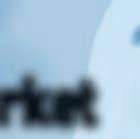




It can cost up to five times more to get a new customer than to keep an existing one. Your existing customers, though, are the business’ built-in marketers. Organic marketing can be a powerful tool for a small business, and this is especially true for drycleaning businesses, which often rely on positive word of mouth to bring in
new customers. Thus, focusing on your existing customers is all but necessary for continued growth.
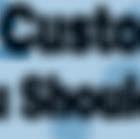
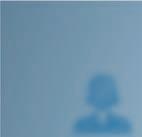
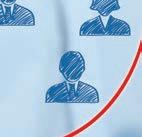

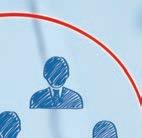

First, ensure you are connecting with your customers. Track all their relevant data. This can include their usual orders and when they were last in the store. Use this information to offer products and services they might need. For example, if it has been a month since their usual order, send them a friendly and personalized reminder text. Customers appreciate personalized outreach, particularly from a specialized store that they chose to patronize.
No matter the industry, any business in 2022 must be engaged on social media. They’re missing out on sales if they aren’t connecting with customers via social media channels.
A strong social media presence allows you to see what your customers are talking about. Additionally, it creates unique marketing avenues through direct communication. By doing so, businesses can hone and enhance their target customer base. For instance, if you see the majority of your customers sharing a link for rug cleaning, it might be time to start offering rug cleanings.
Don’t forget to use different social media channels simultaneously. For example: • Facebook is excellent for an across-the-board audience, with great advertisement potential.
•Instagram is a perfect place to display impressive pictures of quality work.
•YouTube is awesome for behind-the-scenes and informative videos about your company.
Social media allows a business to connect to customers on a personal level. Creating this relationship fosters loyalty and brand excitement. From this, a business owner can dive deeper into the specifics of the customers’ needs. Often, the customers will reach out directly with questions, comments, or even suggestions. Take their words to heart, and you’ll be able to fine-tailor your company to your customers.
For example, if your drycleaning business offers to ship items, you’ll need to research the carriers. Focus your shipping on your customers and their needs. Look into which carrier delivers the fastest results.
Enacting changes based on customers’ wishes will strengthen the relationships — and that will generate continuous business.
As a drycleaning business, there are many innovations to keep up with. Don’t get bogged down in the way things used to be. In the postpandemic landscape of today, every business must adapt to the changes that customers are asking for.
Websites are an essential item. A lack of an online presence will hamper the success of your store. In fact, a website is one of the first tools a potential customer will use to look for information. Without a website, people will have a hard time even knowing that your business exists.
Upgrading the internet side of a drycleaning business can help it stay relevant, especially as the tides of change continue to surge after the pandemic.
In sum, dry cleaning businesses
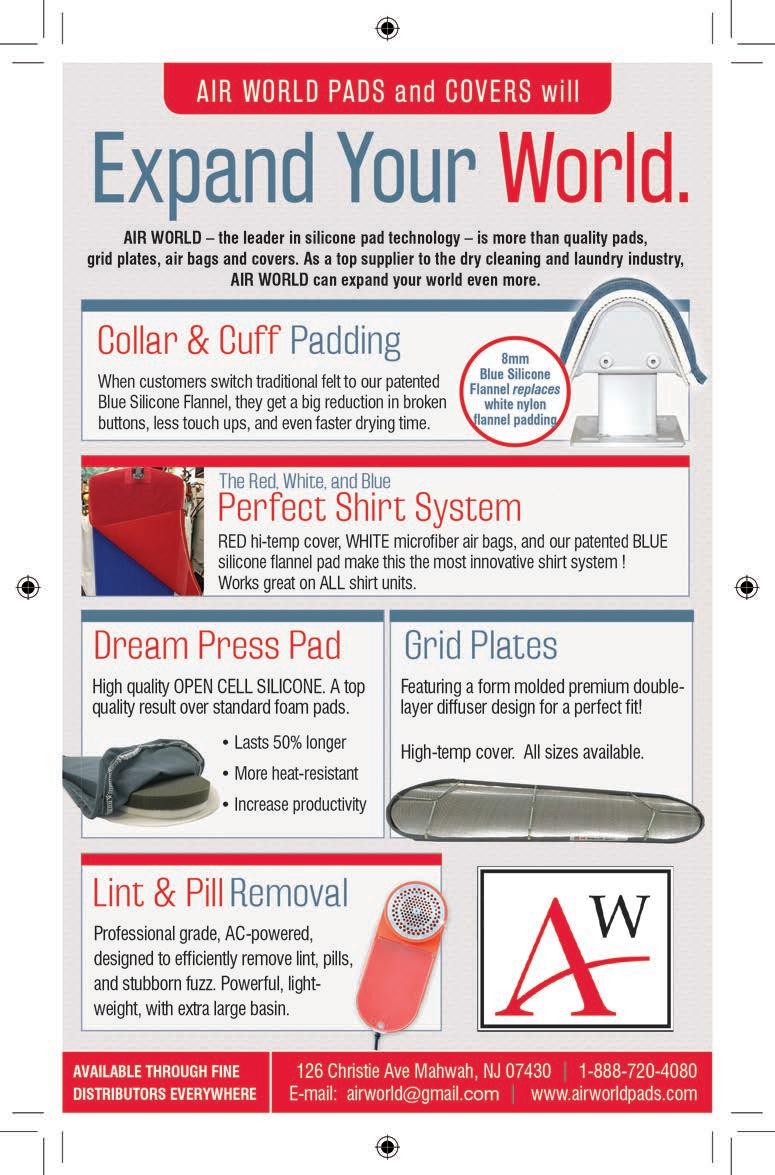
must ensure they are marketing to their existing customers. The customers that show the greatest loyalty should be rewarded. And the best way to do that is to ensure your company offers what they want.
Use social media and business websites to connect personally with your patrons. Stay on top of their wants and needs through direct outreach, surveys, and simply by read-
ing their posts. Social media also allows businesses to market their top attributes through text, pictures, and video-based advertising.
Finally, customers will spread the word about any quality-of-life up grades the business integrates, so be sure to focus on what they want. ADC
Jessica Larson is the owner of SolopreneurJournal.com
In June 2021, ZIPS Dry Cleaners, a nationwide chain of garment-care franchise stores, named Bob Barry as its new president and CEO.
While Barry, who served for more than a decade in the same capacity at The Greene Turtle Sports Bar & Grille chain, had eight years of experience as a ZIPS board member, he was new to the day-to-day experience of operating a dry cleaner.
American Drycleaner sat down with Barry to discuss the state of the industry, his experiences stepping into the lead role at ZIPS, and what he sees coming in dry cleaning’s future.
Q: How do you believe your experience in restaurant chain management will be of help when it comes to leading ZIPS Dry Cleaners into the future?
Barry: I see a lot of similarities between dry cleaning and the restaurant industry. You’re very consumer-focused and labor-intensive. You’re a retail brand, and you’re hopefully getting some loyalty behind it. In the restaurant space, you have to be super-focused on the guest experience, or in the case of dry cleaning, the customer experience.
Q: What’s an area you’ve concentrated on as you’ve stepped into this role?
Barry: Training. We’ve been focused on redoing our training videos, going from using paper manuals to using videos to help people hire new team members, and train them more efficiently by giving them these tools — and be able to retrain them, if they have to.
As you know, the labor is extremely tight right now, and everybody’s facing some challenges. So, part of what I feel we must
do is to make sure, when we do hire somebody, is that we have a very good retention program in place.
Q: Describe the transition from being on the company’s board to taking the president/CEO position. What was that shift in responsibility like, and how did you prepare yourself?
Barry: At the board level, you’re at a much higher level, looking at budgets and approval processes, giving guidelines to the leadership group, and what I call “flying at the 15,000-foot level.” When you become president and CEO, you’re at sea level. You’re in it. So, the transition has been interesting.
I’m working hard to understand the drycleaning business. How many pieces can we do in a period of time? What are the unit economics? What’s the brand positioning? In the last few months, I’ve been in heavy learning mode.
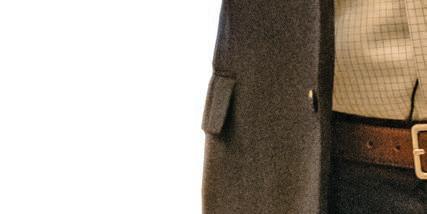
Q: What are some of the challenges you’re facing?
Bob Barry was named president and CEO of ZIPS Dry Cleaners in 2021. One of his main focuses since stepping into the role has been on training and customer service. (Photo: ZIPS Dry Cleaners)
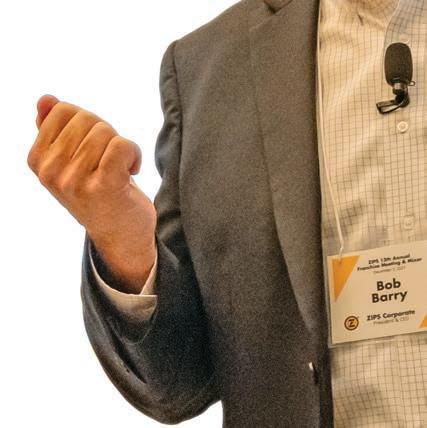

in (Photo: ZIPS Dry Cleaners)
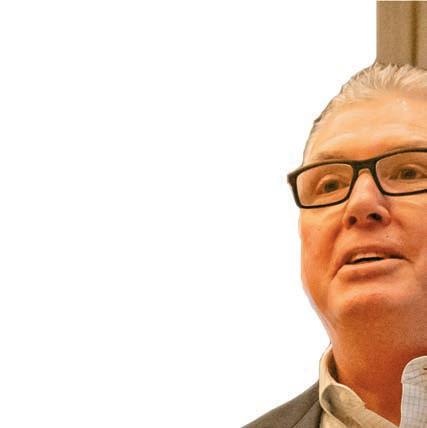
Barry: Focusing on getting the company’s health back from the pandemic. As we know, people aren’t getting back to the office as quickly as we thought. Also, the garments people are wearing have changed dramatically. There’s more casual attire in the workforce than ever before. I think with the labor shortage, we’re going to continue to see that casual attire in the workforce.
So, how are we as a company going to handle that? While dry cleaning may not be as front and center as before, garments still have to be cleaned. We’re excited because people are going to start going out more, and more events are going to open. We’ve seen an uptick in our numbers over the last couple months, and I think that the research will tell us that we’re reaching our 2019 levels. We’ve forgotten about 2020. We’ve decided that we might as well just leave that off to the side.
I’m focusing on trying to determine how we’re going to position ourselves as we’re bouncing back. Also, we need to support our franchisees. They’ve invested money with us, and we need to make sure that we’re giving them everything we can and provide them with the tools to be successful as they come out of these rough 18 months we’ve been facing.
Q: What will make the difference between success and failure for dry cleaners going into 2022?
Barry: I think we’ve got to start looking at technology and automation. The job market is very tight, and the hourly rates are extremely high right now. So, in order for us to be profitable in this industry, we’ve got to look at where it makes sense to automate things that won’t affect the customer’s experience or the quality.
We also have to increase convenience for our customers. Services such as convenient drop-off and

curbside pickup, delivery options, and 24-hour drop-off and pickup are going to be extremely important. And again, we need to automate activities where we can, such as the bagging station and the tagging station. We need to do anything we can to eliminate some hours in production to keep our costs down.
(ZIPS’) model is to charge one price for all garments, and our biggest expense is labor. To maintain that model and to keep that price as low as possible, we’re going to have to continue to see where we can cut those hours without sacrificing the quality or the customer experience.
So, we need to focus on three areas — convenience, technology and automation — to be successful. We’re going to have to change the way we do business and look at different services that may provide us with an opportunity to increase our top-line revenue.
ADC
make ourselves more efficient; invest in your employees to become more efficient. In that way, we all win.”
To grow and prosper, the old mindset of “how we’ve always done it” is a notion that has to be set aside, says Scalco.
“I’ve said this on many Zoom calls, but we have to stop thinking of ourselves as providing a commodity and think of ourselves as more of a service,” she says. “How do we become convenient for our customers to use? How do we enhance that customer experience?”
Part of selling that service is to educate customers on what a dry cleaner can do to make their lives better, Blake says.
“We need to capitalize on the fact that we can clean everything for you — shoes, socks, pants, shirts, slacks, dresses, suits,” he says. “Doesn’t matter what it is; all of that has to be cleaned, and we can do it better. We can make your clothes last longer. And we can save you a ton of time. And I think it’s reshaping our advertising so that we can highlight those critical factors.”
Scalco compares the experience of getting a coffee from Starbucks versus stopping at the convenience store: “I don’t think people would pay $4 or $5 for just a better-tasting coffee,” she says. “They want that whole experience. I think that’s what we have to do. We have to realize who our customers are now and who our customers are going to be in the future.”
These future customers, she says, will be the ones who grew up always having the internet and cellphones.
“They’re highly technical, and they feel more comfortable in that realm,” Scalco says. “Our current customers are in their 50s or 60s, and we didn’t grow up with that technology. It was sort of forced upon us, and we’ve learned to adapt to it. In the future, it’s not going to be that way.”
She points to services such as GrubHub that younger generations have embraced to make their everyday tasks easier; she believes dry cleaners could learn a lot from that model.
“Whatever we can do to be more convenient for our customers, to enhance their lives, is what we need to do. We have to realize we’re in customer service.”
To provide that service, Rahimzadeh believes that there’s one area that cannot be overlooked by business owners.
“Focus on training your team,” he says. “We can become far more effective and efficient by using the labor





we already have. I think that’s one of the things we learned throughout COVID, because we had so much more time to actually spend on training. Operators who spent that time training are now reaping the rewards.”
He has experienced those rewards firsthand.
“We are far more efficient than we ever have been in our company,” Rahimzadeh says. “I really wish I had done it five or 10 years ago. Train your people and get them more engaged, and then utilize that asset and reward it. We’re having our best profitable months in years — some of the most profitable we’ve ever had — and yet we’ve been paying our employees substantially more.”



Although there are still many challenges that lie ahead, Nealis says she is optimistic about dry cleaning’s future.
“I think 2022 is going to be the year of transition, where everybody settles into whatever their new life is going to be,” Nealis says, “but everybody is going to start to live their life again. I think the days of people acting like hermits are behind us.”
“The one thing that the pandemic has taught everybody is that time is valuable,” Blake says.
“We are seeing a lot more people value their time more; they’d rather spend time with families and do laundry. It’s a matter of getting people to understand the relative cost as opposed to the benefit.”
Scalco believes if clients are educated on all the services dry cleaners deliver, this new viewpoint could mean brighter days ahead.
“Dry cleaning is going to come back,” she says. “Probably not 100%, but higher than the 20% that it was. So, if you’ve adapted to performing other work and are at 70% of past profits, and dry cleaning comes back at 50%, you’re going to go beyond those past profits.”
Although it’s an element often neglected, attitude will be key to achieving success in the coming year, according to Nealis.
“It’s important that owners keep their spirits up, and they don’t start feeling defeated,” she says. “They need to have optimism. Otherwise, they communicate that attitude to their staff and to their customers, and that’s no way to get to the other side.”
“We’re past the ‘doom and gloom’ phase at this point, in my opinion,” Scalco says. “We’ve learned what we could learn from the pandemic, we’ve put new processes in place, and I think the industry itself will build upon this foundation and only get stronger.”
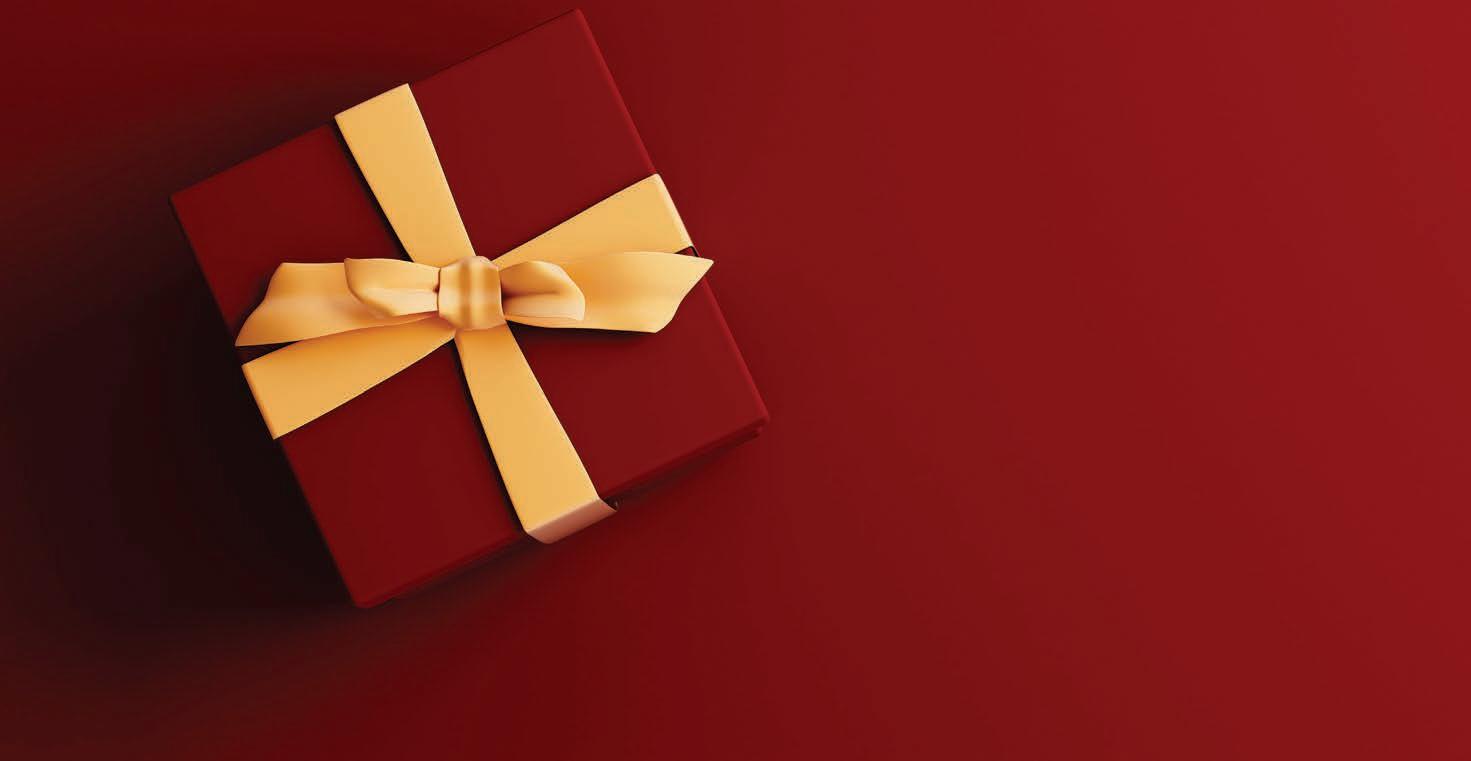
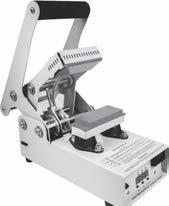
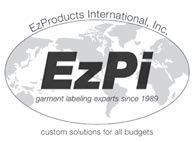
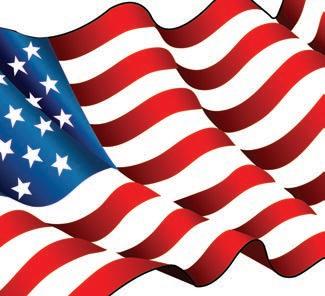

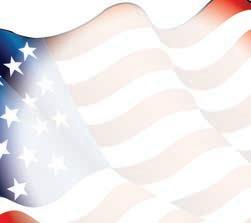



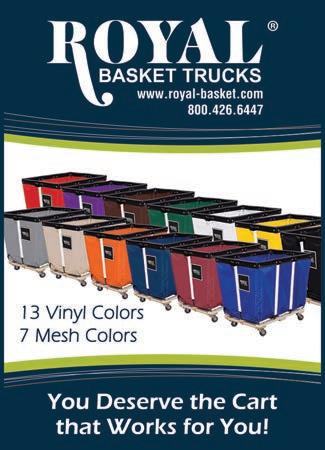
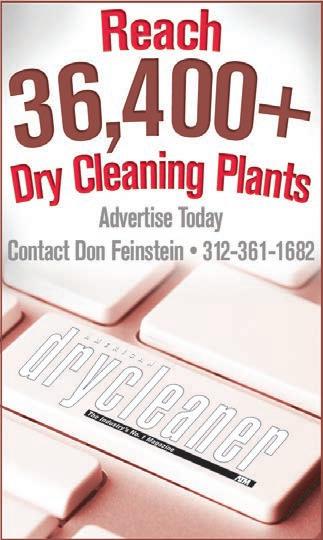
Maverick
Newhouse Specialty Co. . . . . . . . . . .23

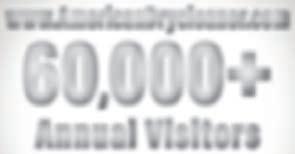



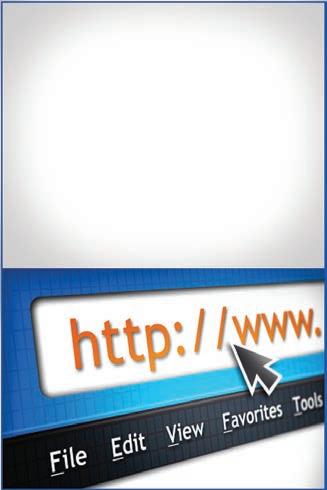




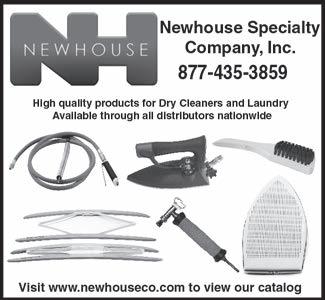
Parker
Patriot
Royal
10 YEARS AGO. Working Together
The Drycleaning & Laundry Institute (DLI) and the National Cleaners Association (NCA) were preparing for their first-ever combined “Five-Star Brainstorming” conference in Puerto Rico in January, 2012. Management styles, economic outlooks and methods to take advantage of Facebook marketing options were some of the sessions announced for the meeting’s agenda. Seminars were scheduled for the mornings, leaving attendees free to network and explore the tropical settings the rest of the day.
25 YEARS AGO. Secret Shopper Fallout — The International Fabricare Institute (IFI) issued a news release to address the PrimeTime Live segment that aired on Nov. 27, 1996, showing that only five out of 15 cleaners visited by surprise “shoppers” satisfactorily removed stains they were given. “This show is a wake-up call for us,” wrote IFI CEO Bill Fisher. Besides the stains not being removed, the release stated, the most appalling part of the program was the reaction of counter personnel to the reporter’s questions. “Cleaners really need to ask themselves how they would have fared if PrimeTime had visited their plant,” said Jon Meijer, IFI’s director of education. “But more importantly, cleaners should examine how their counter personnel would have
reacted if the stains had not been removed.”
50 YEARS AGO. Why Did They Leave? — The Small Business Administration (SBA) released the results of a study it conducted to determine why businesses lose customers. According to the SBA, 1% of customers die; 3% move away; 5% follow the word-of-mouth recommendations of friends; 9% change because of various competitive reasons; 14% leave because of product dissatisfaction; and 68% take their business elsewhere because of “curtness” on the part of employees.
85 YEARS AGO. Ready to Assemble!
— The industry was preparing for


the 30th Annual Convention of the National Association of Dryers & Cleaners, to take place in Cincinnati, Ohio, on Jan. 25-28, 1937. “The 30th is more than a convention,” American Drycleaner wrote. “It marks the beginning of an upward surge to higher standards of practice and craftsmanship.” NADC President John D. Gore was also praised, noting that when he took office in 1935, the organization was still recovering from the Great Depression. It was deep in debt and had discontinued many services. Gore, along with his board, had wiped out the debt by 1937 and had re-established many services.
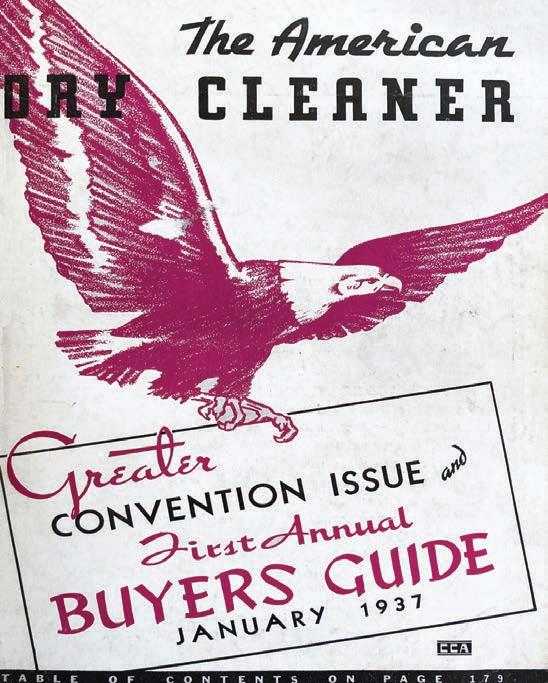

—
Compiled by Dave Davis, EditorProductshaveproventolastupto10timeslongerthan similarproductioninthisindustryandapplications.
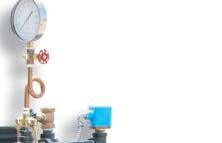
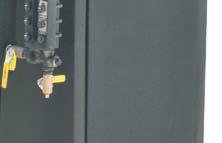
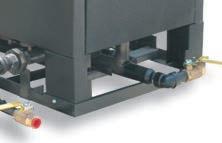
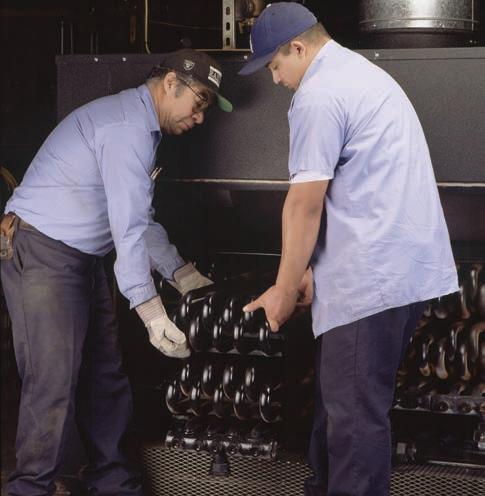
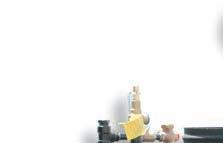
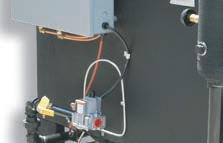
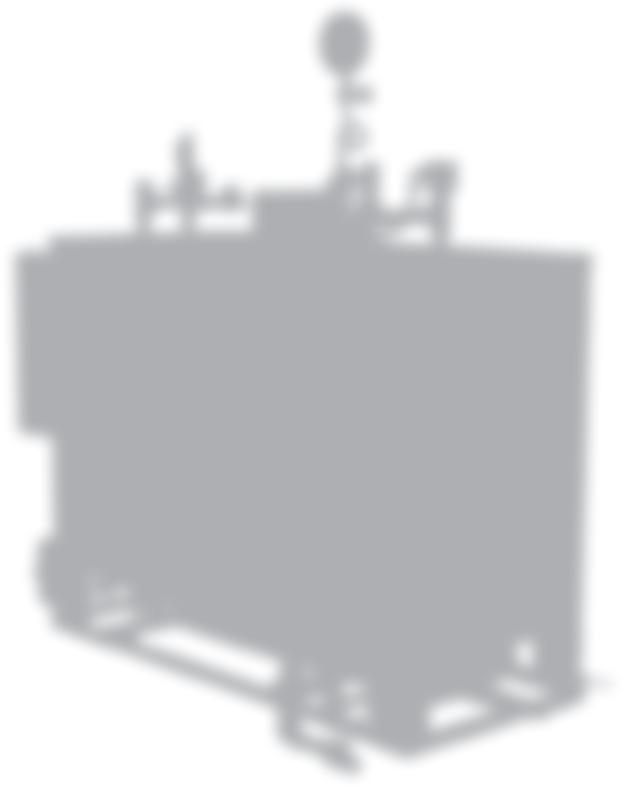
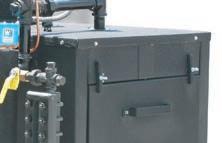
Wehavemanyinstallationswithsteamboilersthathave beeninserviceforover50-years,10hoursperday.
Thematerialsusedincurrentproductsarebetterthanthe materialsused50yearsago.Forexample,inthe80’s, steam drumwentfrom3/8”thickto1/2”thick.
Ourheatingsurfaceoramountofsteelabsorbingenergy has alwaysbeen2to3timesthatofotherunits(upto6sf ofheatingsurface per boilerhorsepower,whichsomeunits arecloserto2sfofsteel per hp,andsomeeven1sf).
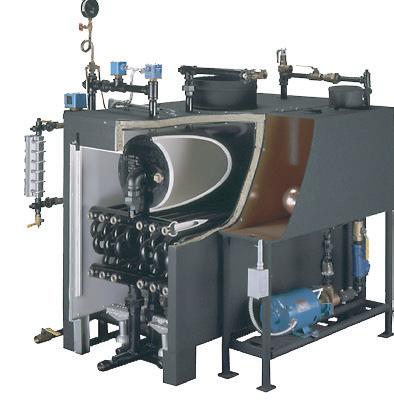

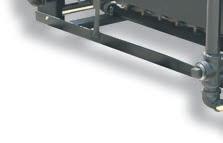
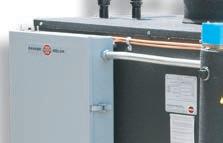
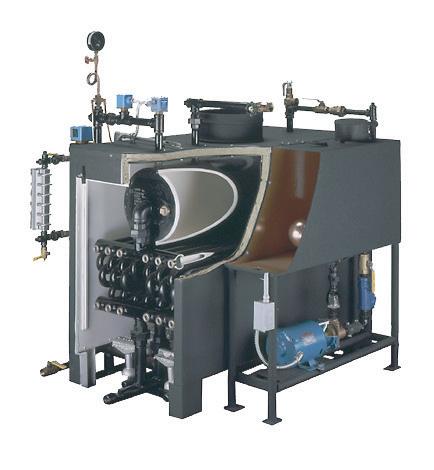
Wehavethebestdistributedflameormostevensurface areaevenlydistributedundertheentirepressurevessel. It isalsoamodulardesign,so it canberepairedeasily.
Tube materials were upgraded from seamlessrated pipe to seamlessrated tubing. Material is not only thicker, ends up .133 wall, but is annealed which give the surface on both sides a mill scale coating that is more resistant to corrosion and is long lasting from testing.
Bill, you’re not truly retired - golfing is a full-time job!

in this new chapter of your life.
Sankosha USA Inc.
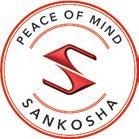
TOLL FREE: (888) 427-9120 • TEL: (847) 427-9120 http://www.sankosha-inc.com
